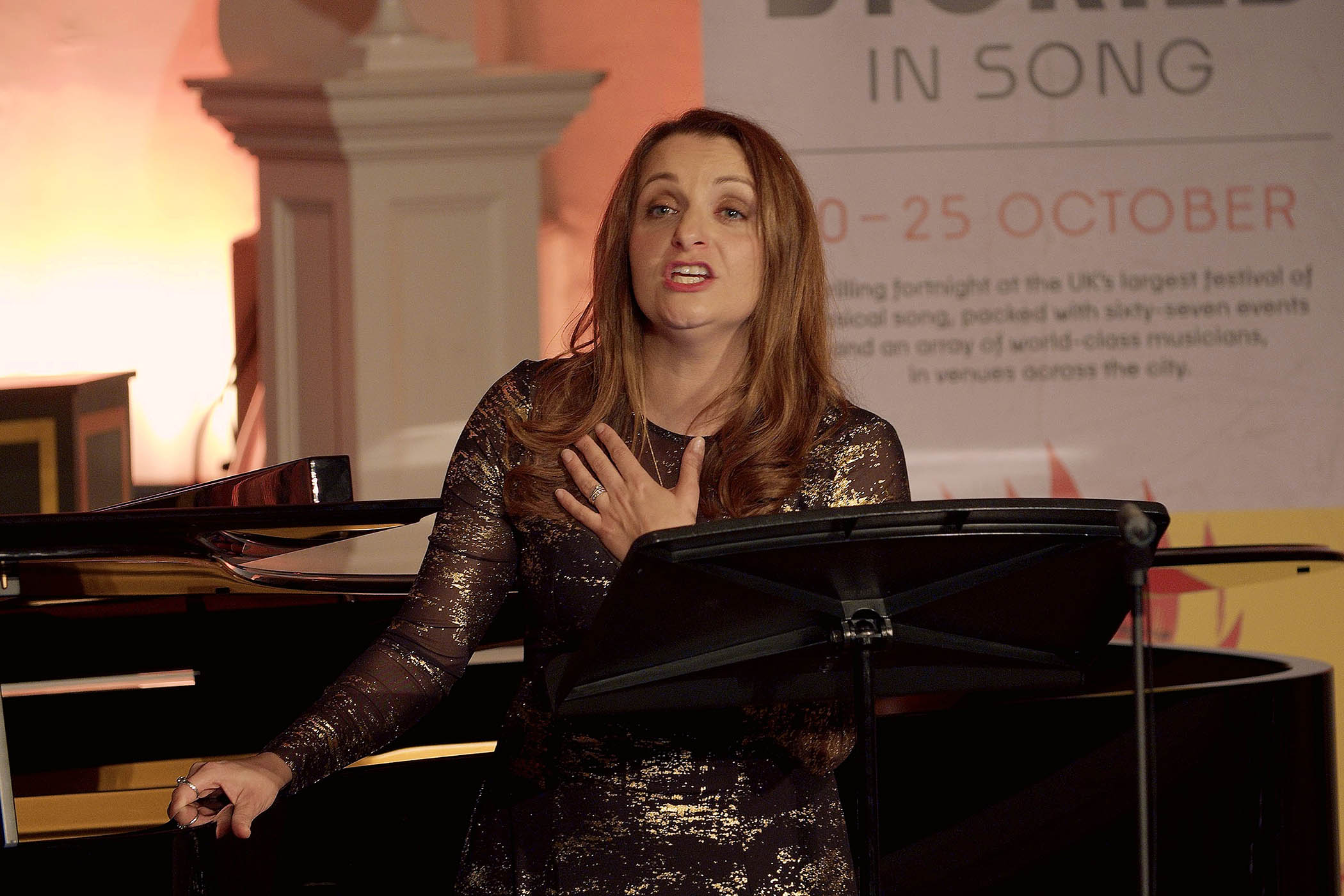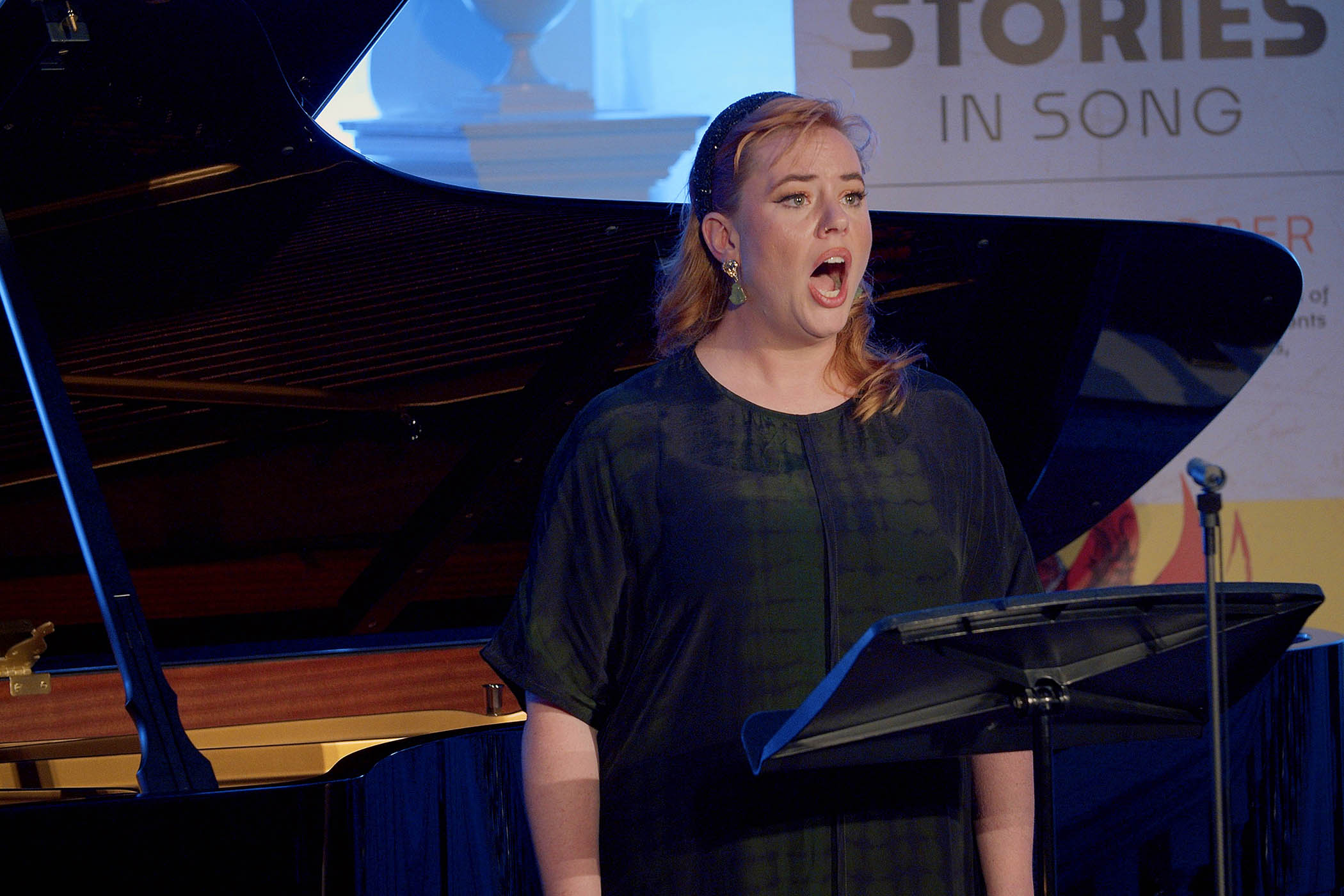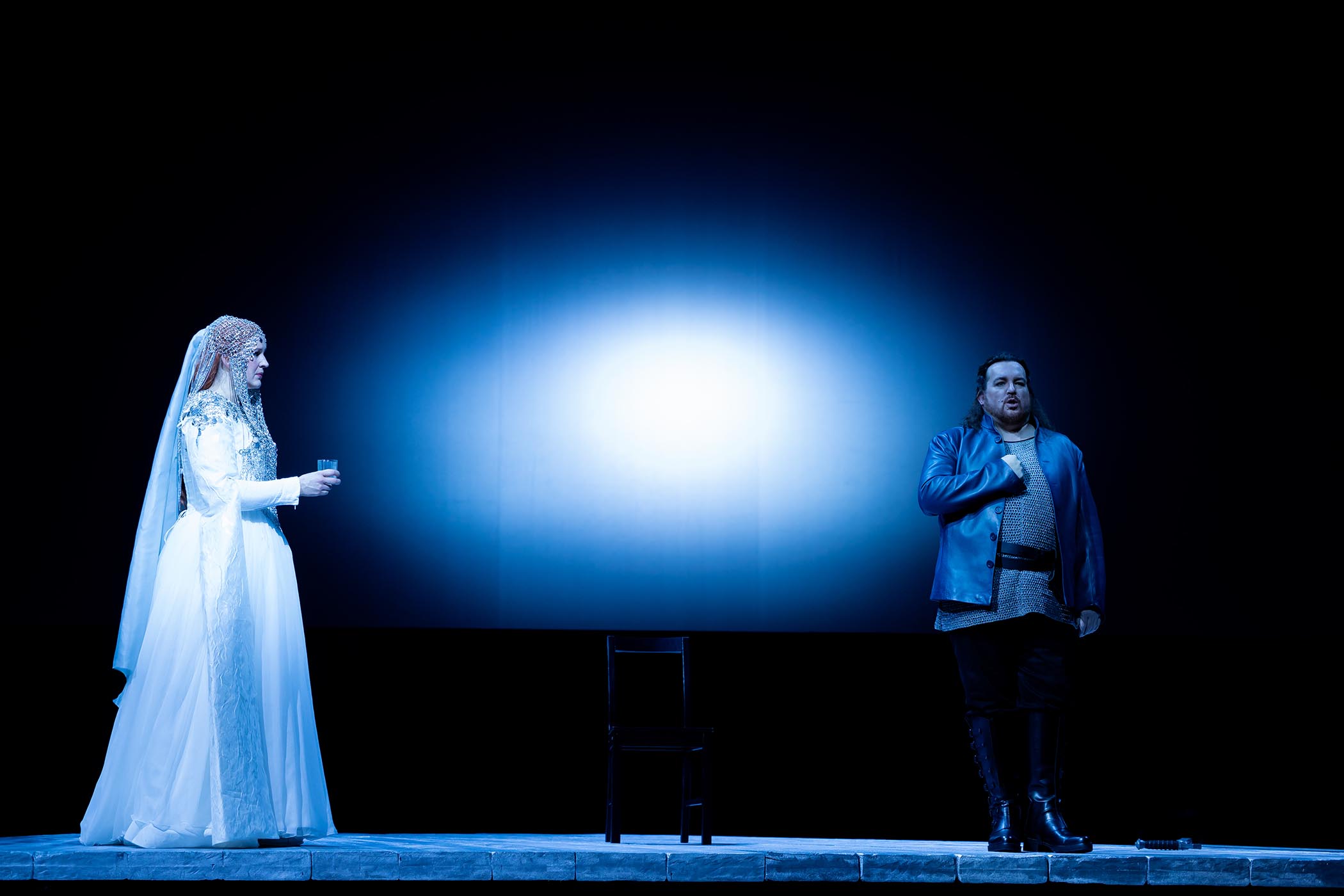Classical song always used to be called Lied. It still is, without error or complaint, especially if you happen to be a German speaker and the text is in German. Schubert, who wrote around 600 songs, or Lieder, put the form on the map. Schumann, Brahms and others followed. More awkward if you are talking about French chansons or Spanish canciones or a setting of AE Housman’s A Shropshire Lad. Call a song a song. Oxford International Song festival, with Schubert at its heart, dropped Lieder from its title, with minimum fuss, in 2023, acknowledging the global reach of this strand of chamber music, a compression of emotion usually lasting just a few minutes, for voice and – but not always – piano.
The name change also reflected the festival’s admirably maverick evolution. Begun by the artistic director and pianist Sholto Kynoch in 2001, this two-week event has expanded beyond recognition. Venues have come and gone as the city has changed, with the Holywell Music Room, opened in 1748 and one of Europe’s earliest music rooms, the mainstay. A covert note of radicalism has found its way in via new works, often by women. Nothing legal is off limits. True, Schubert said all there is to say about love and loneliness, central issues of life, in his Winterreise, 24 songs set in a winter landscape, He did not – mercifully or not – get around to tackling cystitis, menopause or prolapse (all of which appeared, without euphemism, in one recent work I heard at the festival). Young singers and composers, talks and workshops, commissions and world premieres, are key to Oxford Song’s success.

Soprano Soraya Mafi is ‘insightful and expressive’ in Emily Hazrati’s Book of Queens. Main image: Lotte Betts-Dean impresses with her ‘expert dramatic skills’ in The Magdalene Songs
For 2025, the emphasis was on storytelling, from fairytales and love stories to Slavic folklore. The festival’s associate composer for 2024-26 is the fast-rising talent Emily Hazrati (b.1998), making a name with work for Aldeburgh, the London Symphony Orchestra and National Youth Choir. She drew on her Iranian heritage (and that of her librettist and fellow Iranian poet-playwright Nazli Tabatabai-Khatambakhsh) for a new commission, Book of Queens.
This five-part work upturns the ancient Persian epic Shahnameh: The Book of Kings, a vast compendium of pre-Islamic myths about, predominantly, male heroes and villains. Now the emphasis is on women: from mischievous White Demons to queens, princesses and heroines. One aspect of writing for song is the relationship between composer and a particular singer – here, the British-Iranian soprano Soraya Mafi. Accompanied by the pianist Ian Tindale, agile and responsive, she was insightful and expressive in Hazrati’s work, with its warm, Iranian folk inflections and moments of spoken text. Uniting both sides of Mafi’s cultural heritage – her mother is second-generation Irish – part two of the programme featured songs by Ina Boyle, Arnold Bax, Charles Villiers Stanford and Ernest John Moeran, each an evocation of Ireland in miniature.
Earlier that day, Ireland was also the focus. The human rights lawyer Maeve O’Rourke discussed her work with Justice for Magdalenes Research concerning those women and girls who survived the Catholic church-run institutions known as the Magdalene laundries. Countless thousands were imprisoned between the 18th and late 20th century, many of them dying, not from war or famine but from human cruelty. Commissioned with courage and enterprise by the pianist Deirdre Brenner, The Magdalene Songs, an ongoing project, gives voice to each survivor in their own words.
Texts are set by different Irish composers. They recall enforced slavery, darkness, priestly abuse, loss of family, the impossibility of forgetting. The mezzo-soprano Lotte Betts-Dean made the most of her expert dramatic skills, with no excess, in contrasting songs – five were world premieres – by Elaine Agnew, Elaine Brennan, Rhona Clarke and Deirdre McKay. Equally affecting was McKay’s Litany to the Magdalene Dead: the names of 72 of the many were sung as a solemn roll call, intoned on the same E flat note by Betts-Dean, with Brenner supplying an ever more intense piano part.
A different mood, intimate and reflective, lit up a lunchtime recital given by the soprano Ruby Hughes and the pianist-composer Errollyn Wallen, master of the King’s Music. Wallen started writing songs at the age of nine, for her and her sisters to sing on the way to school. She has not stopped since. She and Hughes performed works from her successful 2006 collection The Errollyn Wallen Songbook, ranging from On the Mountain (2010), a soulful ballad in memory of Martin Luther King, to the jazzy, high-energy What’s Up Doc? and the prayer-like Peace on Earth. Other songs included Britten’s I Wonder as I Wander, haunting and rapt, and Ives’s mistily expansive The Housatonic at Stockbridge (“Contented river! In thy dreamy realm / the cloudy willow and the plumy elm”). They made ideal musical partners in this recital, with folk origins and quiet hearts.
Hughes can turn her voice from tender to raw, revealing different colours like a glass held to the light. As pianist, Wallen keeps a persuasive reserve, poetic and unforced, making you listen all the harder. Hear them on BBC Sounds for the next month.
Related articles:
Home listening: Classical music on CD, on air and online
Haydn: Missa Cellensis (Alpha Classics)
Austria’s great shrine to the Virgin Mary, in the small baroque town of Mariazell, in the Styrian Alps, attracted tens of thousands of pilgrims in Haydn’s day, and remains one of the country’s most important religious sites. This was the church for which he wrote his magnificent Missa Cellensis (1766), scarcely known about until 1975 when the original title page came to light – to give a brief version of a long, scholarly detective story. Until then, it was assumed to be dedicated to Saint Cecilia, patron saint of music, not to the Virgin Mary, as Haydn intended. The third of Haydn’s 14 masses, it has been overshadowed by the composer’s later choral masterpieces (the “Nelson” mass and “Mass in Time of War”, among them).
Newsletters
Choose the newsletters you want to receive
View more
For information about how The Observer protects your data, read our Privacy Policy
In a promising new Haydn masses collaboration with the Kammerorchester Basel and the choir of the Zürcher Sing-Akademie (Alpha Classics), René Jacobs captures the mix of reverence and drama in this intense work. On first hearing, the soloists did not seem an ideal blend but – finding this an addictive listen, with exciting choral singing and fiery orchestral playing – it was hardly a deterrent. The jubilant Gloria and the richly chromatic Et incarnatus est act as reminders, if we need it – and it’s surprising how many do – of Haydn’s genius.
Mozart: Requiem and Say: Mozart & Mevlana (Warner)
Two other choral discs to note: Mozart’s Requiem (Warner), with the Rundfunkchor Berlin and Lucerne Symphony Orchestra conducted by Michael Sanderling, is paired, imaginatively, with Mozart & Mevlana (2024) by the Turkish pianist and composer Fazil Say. The Requiem, with soloists including soprano Fatma Said, sounds fresh, energetic, full-blooded, while Say’s work has an otherworldly quality, drawing both on Mozart’s music and a meditative, dervish tradition.
The Voice of the Beloved (Pentatone)
This collection by the much admired Netherlands Radio Choir, directed by Benjamin Goodson, left, features 20th-century sacred works, foremost of which here is Frank Martin’s superb unaccompanied Mass for Double Choir (1922) – a treat if you haven’t come across it – together with Jean-Yves Daniel-Lesur’s Le Cantique des cantiques and Messiaen’s short, luminous O sacrum convivium. Play it blind to someone who claims to dislike Messiaen and get their reaction.
Photographs by Oxford Song Festival



